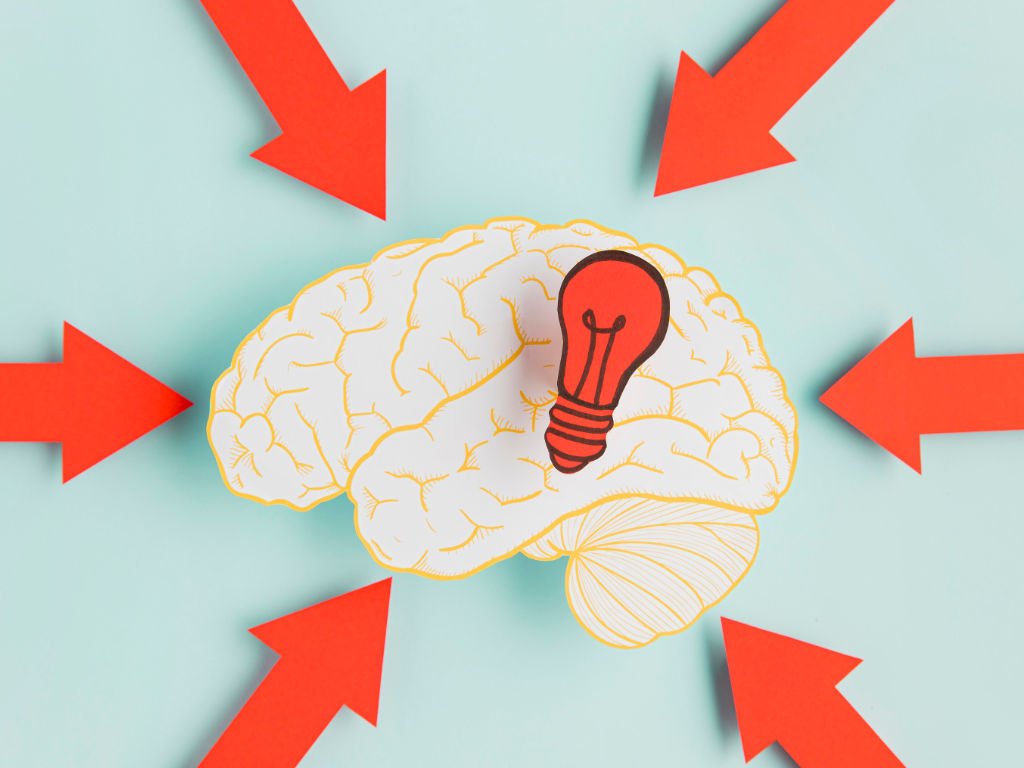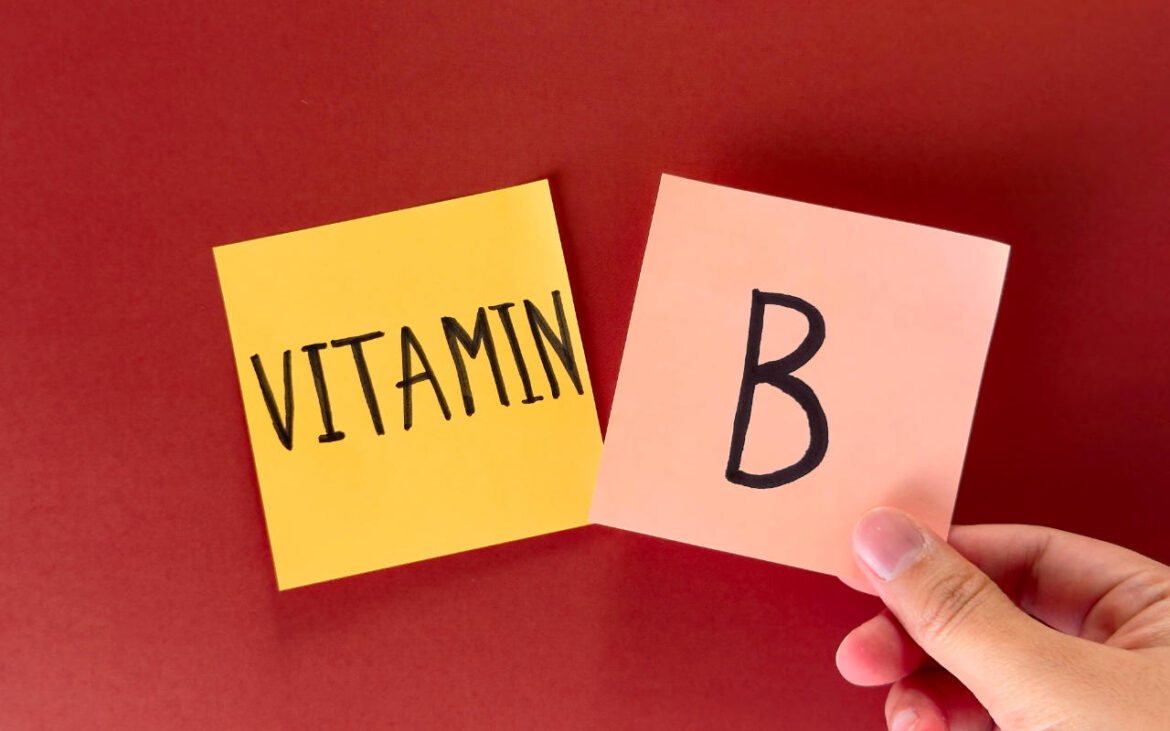Ever wondered why you feel tired even after a full night’s sleep, or why your brain feels foggy during that afternoon slump? The answer might be simpler than you think – Vitamin B. These powerhouse nutrients are quietly working behind the scenes, keeping your body’s engine running smoothly. But here’s the thing: most of us don’t really understand what these vitamins do or how to make sure we’re getting enough of them.
Let’s be honest – when someone mentions vitamins, most people think of vitamin C for immunity or vitamin D for bones. But Vitamin B? It’s like the unsung hero of the vitamin world, doing all the heavy lifting while barely getting any credit. Today, we’re going to change that and dive deep into why these nutrients deserve your attention.
Understanding Vitamin B: It’s Not Just One Vitamin
Here’s where things get interesting – Vitamin B isn’t actually a single vitamin. It’s a family of eight distinct nutrients that work together like a well-oiled team. Think of them as the Avengers of the vitamin world, each with their own superpowers but infinitely more powerful when they work together.
The B complex vitamins include:
- B1 (Thiamin)
- B2 (Riboflavin)
- B3 (Niacin)
- B5 (Pantothenic Acid)
- B6 (Pyridoxine)
- B7 (Biotin)
- B9 (Folate/Folic Acid)
- B12 (Cobalamin)
What makes these vitamins special is that they’re all water-soluble, which means your body can’t store them for long. Unlike fat-soluble vitamins that hang around in your system, B vitamins need to be replenished regularly. It’s like having a leaky bucket – you need to keep filling it up!
The beauty of the vitamin B complex is how these nutrients complement each other. They often work together in metabolic processes, which is why you’ll frequently see them grouped together in supplements. But don’t worry – we’ll get into the specific benefits shortly.
The Amazing Benefits of Vitamin B
Now, let’s talk about what these vitamins actually do for you. The benefits are honestly pretty mind-blowing when you see them all laid out.
Energy Production: Your Body’s Power Plant
First up, and probably the most well-known benefit – energy production. When you eat food, your body needs to convert those carbs, fats, and proteins into usable energy. That’s where B vitamins shine. They act as coenzymes in key metabolic pathways, basically serving as the spark plugs in your body’s energy engine.
Without adequate Vitamin B, you might find yourself dragging through the day, even if you’re eating enough calories. It’s not about getting more food – it’s about your body being able to use that food efficiently. According to research from the National Center for Biotechnology Information, B vitamins are crucial for cellular energy metabolism.
Brain Health and Cognitive Function

Your brain is basically an energy hog – it uses about 20% of your daily calories despite being only 2% of your body weight. Vitamin B nutrients, especially B6, B9, and B12, are essential for neurotransmitter synthesis. These are the chemical messengers that help your brain cells communicate with each other.
Have you ever noticed how your thinking gets fuzzy when you’re stressed or not eating well? That brain fog might be related to B vitamin levels. Research shows that adequate B vitamin intake supports cognitive function and may help reduce the risk of neurological disorders.
If you’re looking to boost your mental clarity naturally, you might want to check out these foods for mental clarity that work synergistically with B vitamins.
Mood Regulation and Stress Support
Here’s something that might surprise you – Vitamin B deficiencies have been linked to mood disorders. These nutrients play a role in producing serotonin and other neurotransmitters that regulate mood. When you’re stressed, your body actually uses up B vitamins faster, creating a cycle where stress depletes the very nutrients you need to handle stress better.
Medical News Today reports that B complex vitamins may help reduce stress and improve mood, particularly during challenging periods.
Heart Health Support
Several B vitamins, particularly B6, B9, and B12, help regulate homocysteine levels in your blood. High homocysteine is associated with increased cardiovascular risk, so keeping those B vitamin levels optimal is great for your heart health.
Red Blood Cell Formation
Your body is constantly making new red blood cells – about 2-2.4 million every second! Folate (B9) and B12 are absolutely essential for this process. Without them, you might develop megaloblastic anemia, where your red blood cells are large but can’t carry oxygen effectively.
Skin, Hair, and Nail Health
Ever wondered why biotin supplements are so popular for hair growth? Biotin (B7) supports the production of keratin, a protein that’s crucial for healthy hair, skin, and nails. But it’s not just biotin – other B vitamins contribute to skin health and cellular renewal too.
For a comprehensive approach to skin health, you might be interested in how essential vitamins for radiant skin work together.
B Vitamin Primary Benefits
- B1 (Thiamin) – Your energy metabolism champion
- B2 (Riboflavin) – The skin and eye protector
- B3 (Niacin) – Your nervous system’s best friend
- B5 (Pantothenic Acid) – The hormone synthesis specialist
- B6 (Pyridoxine) – The protein metabolism expert
- B7 (Biotin) – Your hair and nail beautician
- B9 (Folate/Folic Acid) – The red blood cell maker
- B12 (Cobalamin) – The nerve function guardian
Natural Sources of Vitamin B: Where to Find These Powerhouses
The good news is that Vitamin B nutrients are found in a wide variety of foods. The not-so-good news? Processing and cooking can destroy some of these vitamins, so knowing the best sources and how to preserve them is key.
Animal-Based Sources
Animal products tend to be excellent sources of most B vitamins, especially B12, which is almost exclusively found in animal foods:
Meat and Poultry: Beef, chicken, turkey, and especially organ meats like liver are B vitamin goldmines. Liver might not be everyone’s favorite, but it’s one of the most nutrient-dense foods on the planet.
Fish and Seafood: Salmon, tuna, sardines, and shellfish provide multiple B vitamins. Plus, you get those beneficial omega-3s as a bonus. Speaking of omega-3s, check out this ultimate guide to omega-3 heart health benefits.
Dairy Products: Milk, cheese, and yogurt are good sources, particularly for B2 and B12.
Eggs: These nutritional powerhouses contain significant amounts of biotin, B12, and other B vitamins.
Plant-Based Sources

If you’re vegetarian or vegan, don’t worry – there are plenty of plant-based Vitamin B sources, though B12 supplementation is usually necessary:
Whole Grains: Brown rice, quinoa, oats, and whole wheat products contain several B vitamins. The key word here is “whole” – refined grains lose most of their B vitamin content during processing.
Leafy Greens: Spinach, kale, romaine lettuce, and broccoli are excellent sources of folate and other B vitamins.
Legumes: Lentils, chickpeas, black beans, and peanuts provide folate, B1, and B6.
Nuts and Seeds: Sunflower seeds, almonds, and other nuts contain various B vitamins.
Fortified Foods: Many breakfast cereals, nutritional yeast, and plant-based milk alternatives are fortified with B vitamins, especially B12.
For more plant-based nutrition ideas, explore these superfoods for brain power that complement B vitamin intake beautifully.
Fruits with B Vitamins
While fruits aren’t typically the richest sources of B vitamins, some do contribute:
Bananas: Good source of B6
Avocados: Contain folate and B6
Citrus fruits: Provide some folate
Food Category | Top Sources | Key B Vitamins |
Grains | Brown rice, oats, quinoa | B1, B3, B6 |
Meats | Beef, chicken, liver | B3, B6, B12 |
Fish | Salmon, tuna, sardines | B2, B3, B6, B12 |
Dairy | Milk, yogurt, cheese | B2, B12 |
Leafy Greens | Spinach, kale, broccoli | B9 (Folate) |
Legumes | Lentils, beans, peanuts | B1, B6, B9 |
Eggs | Whole eggs | B7, B12, B2 |
Recognizing Vitamin B Deficiency Symptoms
Here’s where things get a bit concerning – Vitamin B deficiencies are more common than you might think, especially in certain populations. The symptoms can be subtle at first, gradually building up until they significantly impact your quality of life.
Early Warning Signs
Persistent fatigue is often the first sign. Not the “I stayed up too late” tired, but the bone-deep exhaustion that doesn’t improve with rest. When your cells can’t produce energy efficiently due to B vitamin deficiencies, everything feels harder.
Brain fog and concentration issues are also early indicators. You might find yourself reading the same paragraph three times or forgetting simple things more often.
Mood changes can be subtle initially – maybe you’re more irritable than usual, or that optimistic outlook you usually have starts fading.
More Serious Symptoms
If deficiencies continue unchecked, symptoms become more pronounced:
Anemia-related symptoms: Particularly with B9 and B12 deficiencies, you might experience pale skin, shortness of breath, and weakness.
Neurological symptoms: Tingling or numbness in hands and feet, especially with B12 deficiency, can indicate nerve damage.
Skin and mouth issues: Cracks at the corners of your mouth, inflamed tongue, or skin rashes might signal riboflavin or other B vitamin deficiencies.
Digestive problems: Nausea, loss of appetite, or digestive upset can occur with various B vitamin deficiencies.
NHS guidelines emphasize the importance of recognizing these symptoms early for proper intervention.
Who’s at Higher Risk?
Certain groups are more susceptible to Vitamin B deficiencies:
- Older adults: Absorption decreases with age, particularly for B12
- Vegetarians and vegans: Especially at risk for B12 deficiency
- Pregnant and breastfeeding women: Have increased needs for several B vitamins
- People with digestive disorders: Conditions like Crohn’s disease can impair absorption
- Heavy alcohol users: Alcohol interferes with B vitamin absorption and storage
- People on certain medications: Some drugs can interfere with B vitamin metabolism

If you’re managing stress or anxiety, which can deplete B vitamins, you might find these natural anxiety relief techniques helpful alongside proper nutrition.
Understanding Recommended Daily Intake
The recommended daily intake for Vitamin B varies significantly depending on which specific vitamin we’re talking about, your age, gender, and life circumstances. It’s not a one-size-fits-all situation.
General Guidelines for Adults
Here’s a breakdown of the recommended daily amounts for healthy adults:
- B1 (Thiamin): 1.1-1.2 mg
- B2 (Riboflavin): 1.1-1.3 mg
- B3 (Niacin): 14-16 mg
- B5 (Pantothenic Acid): 5 mg
- B6 (Pyridoxine): 1.3 mg
- B7 (Biotin): 30 mcg
- B9 (Folate): 400 mcg
- B12 (Cobalamin): 2.4 mcg
Special Considerations
Pregnancy and Breastfeeding: Requirements increase significantly, particularly for folate (600 mcg during pregnancy) to prevent birth defects and support fetal development.
Older Adults: May need higher amounts due to decreased absorption, especially for B12. Mayo Clinic research suggests that adults over 50 should get B12 from supplements or fortified foods.
Athletes and Active Individuals: May have increased needs due to higher energy demands and loss through sweat.
Factors That Increase Your Needs
Several lifestyle and health factors can increase your Vitamin B requirements:
- Chronic stress: Burns through B vitamins faster
- Regular alcohol consumption: Interferes with absorption
- Certain medications: Like metformin or proton pump inhibitors
- Smoking: Increases oxidative stress and nutrient needs
- Intense physical activity: Higher energy demands mean higher B vitamin needs
For active individuals, understanding post-workout recovery strategies that include proper nutrition can be game-changing.
Should You Consider B Vitamin Supplements?
This is probably one of the most common questions people have about Vitamin B. The answer isn’t straightforward – it depends on your individual circumstances, diet, and health status.
When Supplements Make Sense
Dietary restrictions: If you’re vegetarian or vegan, B12 supplementation is pretty much essential. Plant-based diets can provide most B vitamins, but B12 is the exception.
Absorption issues: People with digestive disorders, those who’ve had gastric surgery, or older adults often benefit from supplements, particularly B12 in sublingual or injectable forms.
Pregnancy: Folate supplementation is routinely recommended before and during pregnancy to prevent neural tube defects.
Certain health conditions: Some medical conditions or medications create higher needs that are difficult to meet through food alone.
The Food-First Approach
WebMD research suggests that for most healthy people eating a varied diet, food sources should be the primary way to get B vitamins. Whole foods provide these nutrients in forms that are often better absorbed and utilized by the body.
Plus, when you get Vitamin B from food, you’re also getting other beneficial compounds – fiber, antioxidants, healthy fats, and other vitamins and minerals that work synergistically.
Quality Matters in Supplements

If you do choose supplements, quality matters enormously. Look for:
- Third-party tested products
- Appropriate dosages (more isn’t always better)
- Forms that are well-absorbed
- Reputable brands with good manufacturing practices
For comprehensive guidance on supplement quality, you might find this ultimate guide to probiotic supplements helpful for understanding what to look for in any supplement purchase.
Maximizing Your Vitamin B Absorption
Getting Vitamin B into your body is only half the battle – you also need to absorb and utilize these nutrients effectively. Here are some practical strategies to optimize absorption:
Timing and Combinations
Take with food: B vitamins are generally better absorbed when taken with food, particularly those that contain some fat.
Don’t megadose: Your body can only absorb so much at once. Splitting doses throughout the day is often more effective than taking large amounts at once.
Consider cofactors: Some B vitamins work better in the presence of others. This is why B complex supplements often make more sense than individual vitamins.
Lifestyle Factors That Affect Absorption
Manage stress: Chronic stress not only depletes B vitamins but can also impair absorption. Consider incorporating meditation techniques for mental peace into your routine.
Limit alcohol: Alcohol interferes with B vitamin absorption and depletes stored vitamins.
Address digestive health: A healthy gut is crucial for nutrient absorption. Probiotic-rich foods can support digestive health.
Don’t smoke: Smoking increases oxidative stress and can interfere with nutrient absorption.
Cooking and Storage Tips
Gentle cooking methods: B vitamins are water-soluble and heat-sensitive. Steaming, quick sautéing, or eating foods raw when possible preserves more vitamins.
Don’t soak vegetables: Long soaking leaches out B vitamins.
Store foods properly: Keep foods cool and consume them relatively quickly after purchase.
Avoid excessive processing: Choose whole grains over refined ones, fresh foods over heavily processed options.
The Connection Between B Vitamins and Overall Wellness
What’s fascinating about Vitamin B nutrients is how interconnected they are with virtually every aspect of health. It’s not just about preventing deficiency diseases – it’s about optimizing your body’s function at every level.
Energy and Metabolism
Beyond just helping convert food to energy, B vitamins support healthy metabolism in ways that can affect weight management. They help your body efficiently process carbohydrates, fats, and proteins, which can support sustainable weight loss efforts.
Mental and Emotional Health
The brain-B vitamin connection goes deep. These nutrients support the production of neurotransmitters that affect mood, memory, and cognitive function. For comprehensive mental health strategies, adequate B vitamin intake is foundational.
Immune Function
Several B vitamins, particularly B6 and B12, play important roles in immune cell function. This makes them part of a broader approach to immunity boosting that includes proper nutrition, exercise, and stress management.
Hormonal Balance
B vitamins are involved in hormone production and regulation. For women especially, adequate B vitamin intake can support hormonal balance throughout different life stages.
Frequently Asked Questions About Vitamin B
Can you take too much Vitamin B?
Since B vitamins are water-soluble, your body generally excretes excess amounts in urine. However, extremely high doses of certain B vitamins can cause problems. B6 toxicity, for example, can cause nerve damage with very high doses over time. It’s best to stick to recommended dosages unless specifically directed by a healthcare provider.
How long does it take to correct a B vitamin deficiency?
This varies depending on the severity of deficiency and which vitamin is involved. Some symptoms might improve within weeks, while others (particularly neurological symptoms from B12 deficiency) might take months to resolve completely. Early intervention is key.
Do B vitamins give you energy immediately?
Not exactly. While B vitamins are essential for energy production, they’re not stimulants like caffeine. If you’re deficient and start supplementing, you might notice improvements in energy levels over several weeks as your body’s metabolic processes optimize.
Can stress really deplete B vitamins?
Absolutely. Stress increases metabolic demands and can accelerate the use of B vitamins, particularly B5 (pantothenic acid) and B6. This is why managing stress through techniques like mindfulness practices is so important for overall nutritional status.
Do energy drinks with B vitamins actually help?
While many energy drinks contain B vitamins, the primary energy boost usually comes from caffeine and sugar, not the vitamins. If you’re not deficient in B vitamins, adding more won’t give you extra energy. Plus, these drinks often contain excessive amounts that your body simply excretes.
Building Your B Vitamin Strategy
So, where does this leave you? Understanding Vitamin B is one thing; developing a practical approach to ensure you’re getting enough is another. Here’s how to build a sustainable strategy:
Start with Your Diet
Focus on including B vitamin-rich foods regularly. This doesn’t mean obsessing over every meal, but rather building a foundation of nutrient-dense choices. Think whole grains instead of refined ones, lean proteins, plenty of vegetables, and if you eat animal products, including some organ meats occasionally.
Assess Your Risk Factors
Are you in a higher-risk category? Vegetarian, over 50, dealing with chronic stress, or taking medications that interfere with absorption? If so, you might want to discuss testing and supplementation with your healthcare provider.
Consider Your Goals
Are you trying to optimize energy, support mental health, or improve overall wellness? Different B vitamins might be more important for different goals. For comprehensive balanced nutrition guidance, understanding how B vitamins fit into your broader nutritional strategy is key.
Monitor Your Response
Pay attention to how you feel. Are you getting enough sleep but still feeling tired? Is brain fog affecting your productivity? Are you more stressed or moody than usual? These might be signals that your B vitamin status needs attention.
Work with Professionals
If you suspect deficiencies or have specific health concerns, work with healthcare providers who can order appropriate tests and guide supplementation if needed. Modern health diagnostics are making it easier to assess nutritional status accurately.
The bottom line is that Vitamin B nutrients are fundamental to feeling your best. They’re not glamorous or trendy, but they’re absolutely essential for energy, brain function, mood stability, and overall health. By understanding what they do, where to find them, and how to optimize your intake, you’re taking a significant step toward better health and vitality.
Whether you’re just starting to pay attention to nutrition or you’re fine-tuning an already healthy lifestyle, don’t overlook these nutritional workhorses. Your body – and your energy levels – will thank you for it.


